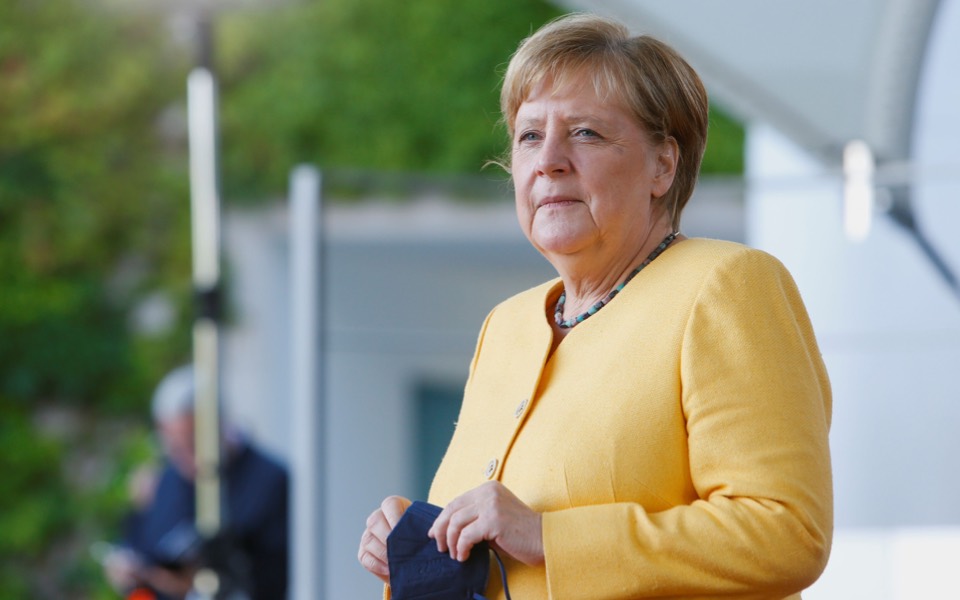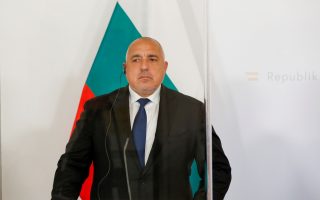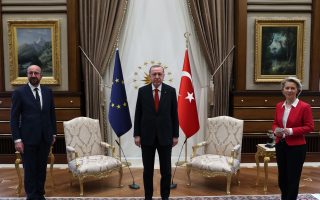Merkel’s appointment with history

Europe has to grow up. It was shaken awake first by Donald Trump and now again by the events in Kabul. The question is whether it has the stalwart leadership it needs on the turbulent path to adulthood.
In just a few weeks, Angela Merkel will become the subject of historical interest, leaving a massive leadership vacuum in Germany and in Europe. Whether you agreed with her or not, the chancellor was the only relatively steady hand at the helm of both over the past few years and it will take a long time before she is replaced. She may have been the definition of the uncharismatic leader, but everyone who was ever in the negotiating room with her knew that despite delays and compromises, there would be a solution.
It is strange that two of the biggest crises she had to deal with concerned Greece: its bankruptcy and the possibility of Grexit, and the refugee/migration crisis. She has often confessed that she doesn’t understand how this country “works.” She told a story about how she would look across to Greece from Bulgaria while on holiday as a student from East Germany and recite Homer, thinking how lucky the people on the other side of the “fence” were. She admired the art of “kolotoumba” (literally a somersault, and metaphorically doing a 180-degree turn from your original position) and confessed to associates that she didn’t understand how things were done in Greece, but they did, eventually, get done.
The debt crisis was a tightrope act for the chancellor. She convinced the public at home of the need to lend Greece money, but did so according to a punitive model of fiscal austerity in order to placate German voters. Every decision she had to make was delayed as she waited for yet another electoral battle in a German state and she allowed the destructive specter of Grexit to hang in the air until the very last minute. On the other hand, it is almost certain that a weaker leader in Berlin would have ignored the geopolitical consequences and given in to pressure to oust Greece from the eurozone.
On the matter of the refugee crisis, Merkel panicked when she realized that she had given too much and touched a sensitive chord in the German public mind. But she was also practical in ensuring that the flows would stop in Greece. It was an experience, however, that left a mark. Determined not to relive the nightmare of uncontrollable inflows, she regarded Turkish President Recep Tayyip Erdogan as the key to the problem and this has been apparent ever since.
Greece wants a strong Europe. We should be concerned by its geopolitical marginalization and by the fact that few serious leaders appear on the horizon. So, despite whatever bone we may have to pick with Merkel – and quite justly so in many respects – we are likely to feel her absence strongly. The circle that opened in 1945 comes to a close today and Merkel played an important role in Europe’s crucial appointment with history.





